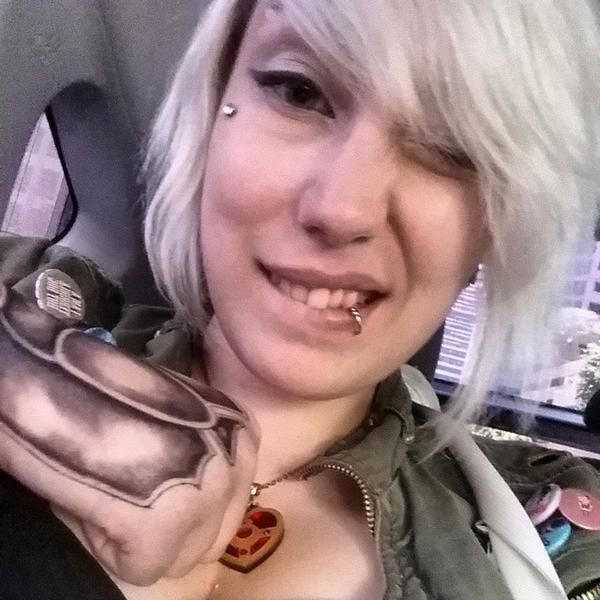Developers On 'Gamergate:' Misogyny Isn't A Gaming Problem, It's An Internet Problem

The Gamergate scandal hasn't gone away, but a number of male and female developers wish it would, so that they can go back to doing what they love -- creating games. While many observers say they think Gamergate is all about attacking women in the video game industry, some in the industry say it's a much broader movement, and the bullying by anonymous trolls is just an unfortunate extension of what happens across the Internet.
“Calling something misogynist is an easy way to dismiss any rational points that have come out of Gamergate," gaming industry veteran and Alberta, Canada, developer Jennifer Dawe tells International Business Times. "The reality is if this were just 'misogyny' it would have died off a long time ago. There are enough people keeping it going and I do not believe most if any of them are actual misogynists.”
What about the female game developers who have been targeted by Gamergate supporters, receiving threats of rape and choosing to leave their homes out of fear for their safety? Nick Robalik, a developer at PixelMetal Games and Gamergate supporter, questions the source of these attacks.
“I find it disconcerting that the attacks levied at those who frequent and support the Gamergate movement on Twitter are so constantly attacked for being sexist when, to anyone who actually looks at what Gamergate supporters are saying, that's clearly not the case,” Robalik told IBTimes. “Not only is it probably untrue, it's also a lazy ad hominem attack levied at an extremely diverse group of game enthusiasts that includes a significant amount of women participating on both the #gamergate and #notyourshield hashtags.”
The #NotYourShield movement, which became a Twitter trend shortly after actor Adam Baldwin, 52, popularized the Gamergate hashtag in August, represents minorities of all ages and genders who claim they don’t support the harassment of women, but also wanted fair and unbiased reporting in the gaming journalism field.
I stand with #gamersgate. I am an asian female gamer, and you don't speak for me. I'm #notyourshield, deal with it.
- Shiori (@SimplyShiori) September 4, 2014I am a gamer. I am trans. I am a single parent. I am pansexual. I am not a bigot. #notyourshield #gamergate
- Nick E. Nailz (@NickDeSlick) September 4, 2014“People never really cared if I was a woman or not, and I've been in the industry for 11 years,” Dawe added. “I've noticed more and more lately, though, [that] we're focusing on people who do get harassed rather than their body of work and I am wondering what kind of impact that is having on perceptions.”
Dawe feels the best way to deal with online harassment is to ignore it. If someone feels her life is in danger, she should alert authorities but not give the online trolls any publicity, Dawe suggested. This is the opposite of what developer Zoe Quinn, Brianna Wu and feminist blogger Anita Sarkeesian did. All three women openly tweeted about their harassment, also alerting the online community that they were leaving their homes.
“The main thing is not to respond to it. The more you stoke the fires and argue with random trolls, the more they are going to come at you because they are getting visibility and satisfaction,” Dawe said. “It's also very dishonest to use something that regularly happens on the Internet and attribute it to a group, who just want game journalists to stop insulting them, by default.”
Robalik also believes it's unfair this type of negative behavior is automatically being attributed to the gamergate movement, when, in fact, this type of behavior happens all the time.
“While there are anonymous people on Twitter sending out what could be perceived as threats or harassment, no real evidence exists, or at least has not been presented, that illustrates their connection to the #gamergate hashtag in any substantial way,” Robalik added. “This is one of the major downsides of this discussion being forced on to Twitter. Game-related websites, which should be hosting and fostering this discussion, have instead been attempting to control the narrative and block any dissenting opinion. As a result, we’re forced to discuss this on Twitter where anyone, anywhere, with any motivation, can post to what is a public hashtag on a public website.”
Robalik isn’t convinced threats of violence against Quinn, Wu or Sarkeesian are anything out of the ordinary, especially when male game developers also receive death threats. Valve managing director Gabe Newell Monday received a number of hostile tweets from an indie game developer.
“As the recipient of one of those threats, I completely agree that the threats received by a small number of the women involved on the anti-Gamergate side are receiving more attention from some of the gaming press that are, by and large, the same people Gamergate has taken issue with,” Robalik said. “This is not an issue that is limited only to women. These are just the cases that have been garnering the major publicity.”
While threats toward game developers of either gender are wrong, harrassment toward women in the industry is inarguably worse, and sexually charged acts, like rape, are often at the center of the ugly attacks. However, Robalik feels that this is just part of being in the public eye.
“This is the real world; people have different opinions about different things, and I believe that referring to disagreements as sexist is often a lazy way to avoid genuine criticism -- on all sides.”
“This is not a 'gamer' problem; this is an Internet problem. I made video games without social media for many years and not due to any threats, I just didn't want to. You're going to get random trolls when you engage in social media,” Dawe added.
© Copyright IBTimes 2024. All rights reserved.












